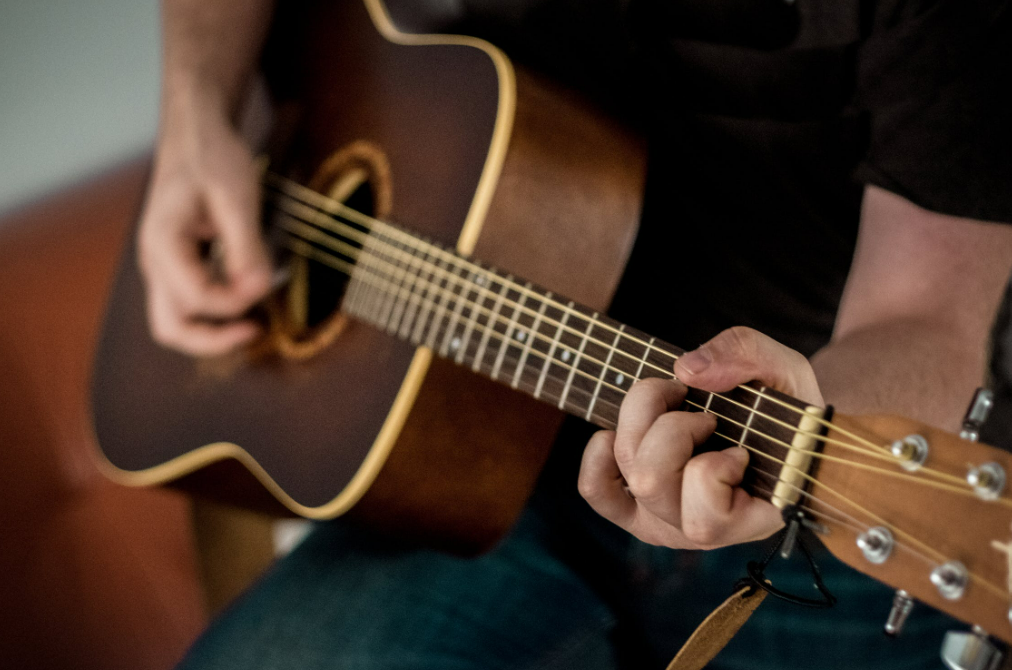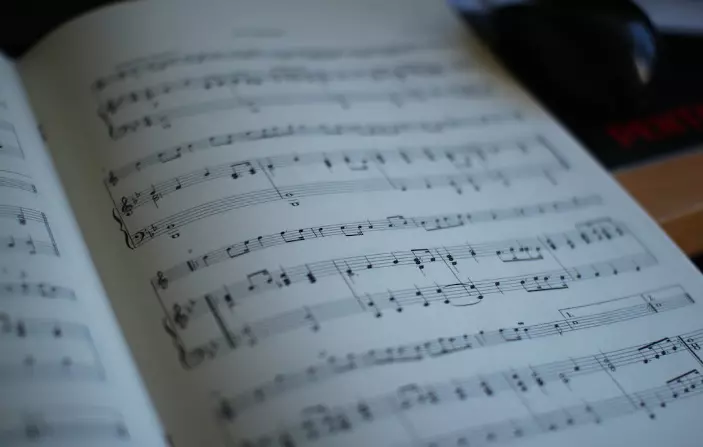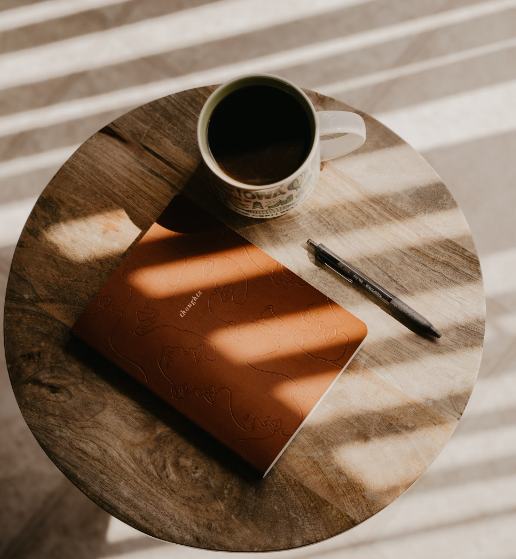The Fastest Way To Get Better At Guitar | 5 Tips
You may or may not have realized this just yet, but every single guitarist out there wants to play super fast licks. They all want to play clean, with precision, and with an excellent sense of dynamics and tone.
The problem is, there can only be one Buckethead in a sea of mediocre players. So then, to tackle this problem, we first need to understand why so many players don’t get better.
The Big Picture For Beginner Guitarists
You have a new guitar, and you learn your first chord. Then quickly, you move on to learning some overplayed songs that you can play at a campfire. Over time, your interest in the instrument fades and the guitar sits on the stand staring at you.
If this summed you up, then you know exactly what happened here. You did start out feeling motivated but that soon faded away, and you lost what little chops you may have developed.

In my humble opinion, what separates a guitar player into good and average is not the amount of talent they have, but the consistency of their efforts. It’s a lot like a marathon really.
What is the fastest way to improve on guitar?
The fastest way to improve on any instrument is to master the basics of not just the instrument itself but also the building blocks of music. And once you get used to how notes behave when used in conjunction with one another, a whole new world of opportunities will open to you.
If you ask any player, you will get a lot of different answers because each guitarist had a different approach to learning and mastering their instrument.
In this short article, we take a look at the super easy ways to get amazing good at guitar. Let’s get started!
How To Get Better At Guitar?
1. Play with a backing track
I think a metronome is something that every guitarist should be familiar with.
Every musician needs to know about intervals and note subdivisions. If you play around with quarter notes, eighths, and sixteenths along to a track, not only do you get to improve your musicality without listening to annoying click-tracks, but you also get a feel for improvising over something that actually sounds like music.
There are a plethora of options when you want to choose a backing track to practice over. Electric guitar players will find that they can easily play along to any track on YouTube or any streaming service as electric guitars are pretty loud. Just pull up a pentatonic scale chart and jam along!
But for the humble acoustic guitarist, things can get a little tough as the sound of an acoustic guitar can get drowned in the track.
Personally, I find tracks by Tom Bailee or Quist to be fantastic. If you are in the mood, you can also make your own backing tracks by using the ChordBot Lite app that I’ve reviewed here under 9 Best Guitar Accessories list.
2. Learn intervals
Knowing your intervals may sound like a geeky approach to playing guitar but you will find that a basic level of music theory will help your playing by leaps and bounds.
There aren’t even that many intervals to learn, and a basic understanding will help you while soloing.

Knowing these certainly helped me play by ear, and if ear training is something you struggle with, I recommend you to look into intervals.
Though this is a completely different topic, learning vocals can also improve your ear.
If you want to learn intervals, you can start with a detailed course, or just on your guitar. I do have an article here that goes deep into intervals on guitars. A complete mastery of all intervals that make up various arpeggios can doubt help you a lot.
3. Learning full songs
We all know how boring practicing the same over and over can get. But, the truth is, the only way to get better at a particular section of a song is to internalize it so good while you practice that you simply cannot mess it up while performing.
If you know just two or three songs, that’s much more valuable than knowing bits and pieces of a dozen songs. Start out easy, and even learning bass songs on guitar can give you valuable knowledge.
So, instead of rushing to learn the next song, focus on singing the one song you are currently learning to the best of your ability.
4. Learning scales after you master 2 – 3 songs
Many players get caught in the trap of learning endless scales and modes, and that can hinder your progress in sounding natural and musical.
I think it’s actually a great idea to learn major and minor scales along with the basic pentatonic positions.
You should probably learn the major pentatonic scales in the scales of C major and A minor, and once you get the hang of that, you can gradually move on to full major and minor scales.
Learning modes can also make you a more versatile player, but I would also suggest that you do so only after you have a decent grasp of scales and harmony.
5. Take It Slow
It may sound contrary to what the list is about, but hear me out, okay?
Everybody learns at a different pace. Somebody out there mastered their scales at a super young age while so many guitarists sound just fine without ever hearing about scales and modes.

Guitar learning is not a race, it’s just a process. So, you should focus more on enjoying the process than chasing the destination, which, more often- slows you down instead.
Keeping a positive attitude and not being afraid to fail is also something that you should cultivate as a musician. It’s super easy to just stop playing instruments because it’s hard and challenging, but if you keep at it, little by little, one day it will be all worth it.
Everything worth learning takes it’s sweet time. That relates even nicely to bar chords on the guitar which are honestly a pain when first starting out. But over time, it gets easier as your finger strength and dexterity improve.

If you keep at it every single day and are learning something new, you are bound to master the instrument sooner or later, right?
Should I start out on an easier instrument?
Well.. it depends on what you think is easy on any instrument. It’s relatively easy to play basic scales on keyboards as opposed to playing on a string instrument, and that’s mainly because a beginner just starting out won’t have the necessary strength and dexterity to pull it off.
But being able to play on a basic level won’t take you more than a week if you are not starting out on a fretless instrument. I don’t hate fretless instruments really, but I would say that for a beginner, it’s a huge pain in the ass as not only do you need to sound musical but you also need to worry about the intonation of every note being played.
It’s really not surprising that so many beginning violinists sound like a dying cats during the first few months of practice.
If you start out on a ukulele, you may find that you can do chords with just a finger on two but you can also do that on a guitar. You just need to be a little creative, and the learning is more rewarding.
Closing Thoughts
There are many things you could do to get better at guitar. Taking lessons has been the single most important thing that I ever did to kick-start my progress. Using a metronome and a tuner more frequently are also things that will tremendously help you.
I find that regardless of the approach you take, consistency is the key to success. Even if you just pick up the guitar and learn just one new thing each day, that’s over 350 in a year. So, make sure to stay motivated and play regularly, and you’ll find yourself improving in no time at all.
FAQ
Is ear training necessary for guitarists?
Absolutely! Every musician needs to be able to identify intervals as well as reproduce melodies they may hear on their instrument. This skill is a super valuable one in the arsenal of an experienced player and also helps when trying to pick up new solos by ear.
You may think that there are a plethora of tabs online for you, but they may be wrong. And knowing which interval sounds off can help you figure out the correct transcriptions as well.






